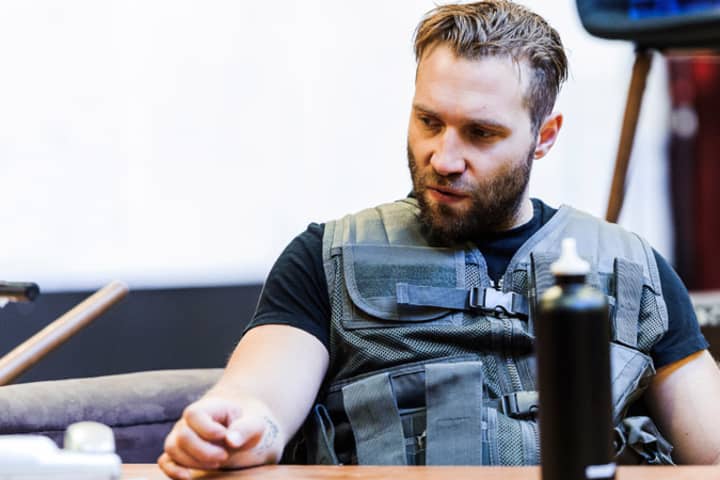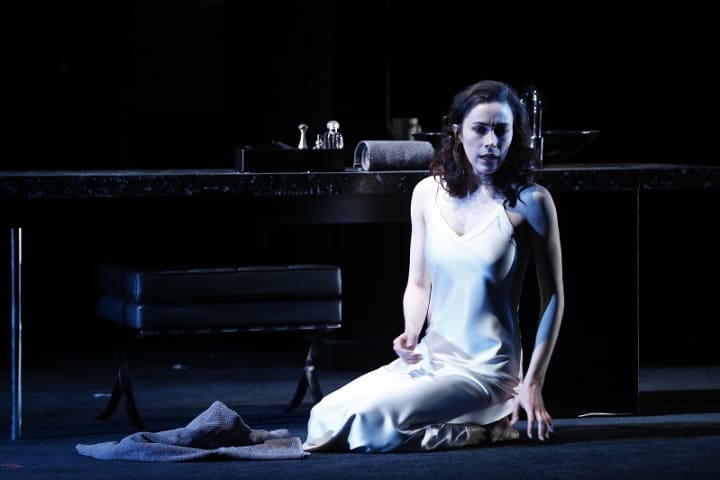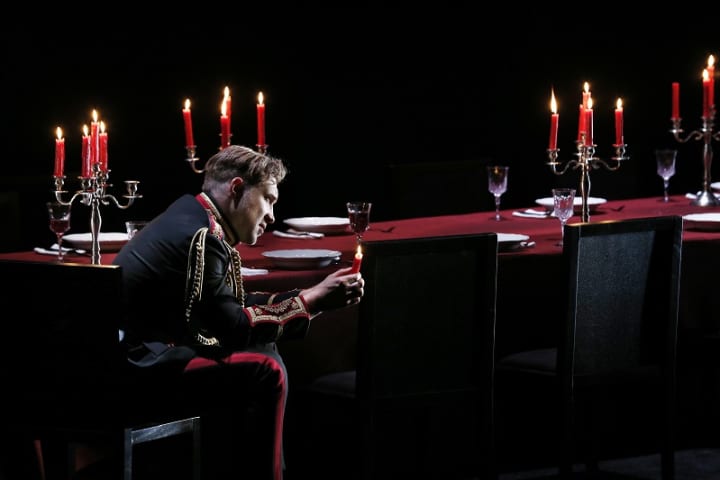Ahead of the Macbeth season, Simon Phillips tells us why his love for Shakespeare is never ending.
Can you tell us a bit about the role Shakespeare has played in your life?
I became acquainted with Shakespeare really early on. We had the complete works at home and I started reading it when I was quite young. I always felt like I had an inroad to it. Like it connected to me on a blood level. When I was at Auckland University and still doing a bit of acting, we used to do an outdoor Shakespeare every year. It’s just always been part of my life. There’s something about the language of Shakespeare that makes it my first theatre love.
A lot of cast members have spoken about thresholds being a central theme in Macbeth, how are thresholds being explored in the rehearsal room?
It’s just a good point about the play – that people are on the cusp of making vital decisions in so many scenes. And of course Macbeth never stops being on that threshold. He’s aware of that, he says: ‘If the assassination could trammel up the consequence.’ One thing leads to another. As soon as the door closes on Duncan, one opens on Banquo, and when we close the door on Banquo, we open the door on Macduff. So Macbeth is at a state of thresholds throughout the entire play.
How would you describe the world of this play?
One of the hardest things about embracing every element of Macbeth is that it’s more disparate than a lot of other Shakespeare plays. There is the quite complex psychology of what goes on between Macbeth and Lady Macbeth and there are some deeply human elements in many of their scenes together. Then there is this abiding sense of danger and chaos that the witches engender. There’s also the sense of warfare which bookends the play. And so, you’re always trying to create a world that allows the domestic to breathe and live in a real way, but also that responds to the supernatural and all the images of darkness and nature being sent awry that inhabit this play.
I wanted to create a contemporary world, set right now. But you don’t really know where it’s set. It’s extremely dark. It’s unrealistically dark. I wanted furniture that could be from any old house to live inside a world that was black, so you could feel that the supernatural was at work, but within that you could still see people eating their dinner.
How did you arrive at the decision to use a revolve?
I really wanted to be able to move fluidly from one setting to another. I seem rather obsessed by the idea that you can go to a world that creates tone and atmosphere beyond the text. Shakespeare’s texts always create atmosphere, but I think it gets more exciting if you’re in an environment that backs that up. We’re using a fourteen metre revolve in a massive room so that creates the ‘epic’, whilst also creating a sense of intimacy. In fifty percent of the play we’re using no more than the front quarter of the revolve. But the audience will know that there’s this big space behind them, which feeds into their psyche.
What do you love about Shakespeare?
I have an absolute blood connection to the language. It makes me feel so good to listen to that language. It’s so densely, perfectly, poetically rich, while also creating the quintessence of a psychological state at the same time. You’re kind of in a constant state of awe with it.
How would you describe your process as a director?
When you have a play of this size, you have to work in essential terms – how you’re going to make it work, because it needs to be built and designed. I like to have the bigger vision in my head when we start, but once we’re in the rehearsal room, I want as much room for it to breathe as possible. However well you think you know something, you can’t anticipate the nice textures that other people are going to pick up. Macbeth begins with a blood-soaked man screaming. In this play, the sense of violence is far more constantly present than it is in other Shakespeare plays. I was also determined there would be flame, to increase the atmosphere of danger, which is constant.
Macbeth plays at Southbank Theatre from 5 June. Book now.
Published on 4 June 2017





